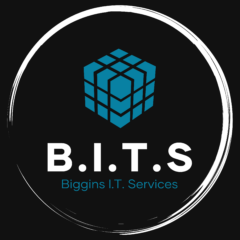Unveiling the Essentials: A Beginner’s Guide to Computer Basics
Category : Uncategorized
In today’s tech-driven world, understanding computer basics is not just a skill; it’s a necessity. Whether you’re a tech novice or someone looking to refresh their knowledge, this guide will unravel the fundamental aspects of computers, empowering you to navigate the digital realm with confidence.
1. The Hardware Foundations:
At the heart of every computer lies its hardware. Start with the central processing unit (CPU), the brain of the computer, responsible for executing instructions. Explore the significance of RAM (Random Access Memory) and storage devices, like hard drives or SSDs, where data is stored for quick access. Understanding the role of the motherboard, graphics card, and power supply completes the hardware puzzle, providing a holistic view of your computer’s internal components.
2. Operating Systems and Software:
Delve into the world of operating systems (OS), the software that manages hardware and enables interaction with your computer. Windows, macOS, and Linux are prominent examples, each offering unique features. Uncover the importance of software applications, from word processors to web browsers, that enhance functionality and cater to specific tasks. Learn how to install, update, and navigate through various software to make the most of your computing experience.
3. Connectivity and Networking:
Computers thrive on connectivity. Explore the basics of USB ports, HDMI, and other connection points that facilitate communication with external devices. Dive into networking essentials, understanding the significance of Wi-Fi, Ethernet, and routers. Unravel the mysteries of IP addresses and DNS, laying the foundation for seamless online experiences and communication.
4. Cybersecurity Awareness:
As you embark on your computer journey, prioritize cybersecurity. Learn about antivirus software, firewalls, and best practices for creating secure passwords. Understand the threats lurking in the digital space and adopt habits that keep your computer and personal information safe from potential risks.
5. Troubleshooting and Maintenance:
Equip yourself with basic troubleshooting skills to tackle common computer issues. From software glitches to hardware malfunctions, understanding how to diagnose and resolve problems ensures a smoother computing experience. Additionally, grasp the importance of regular maintenance tasks, such as software updates and system backups, to keep your computer running optimally.
In conclusion, this guide serves as your compass in the vast landscape of computer basics. Whether you’re a student, professional, or simply someone eager to demystify technology, a solid understanding of these fundamentals will empower you to harness the full potential of your computer. Embrace the journey of discovery, and let these computer basics be the stepping stones to a more confident and informed digital experience.
–Brandon Biggins
